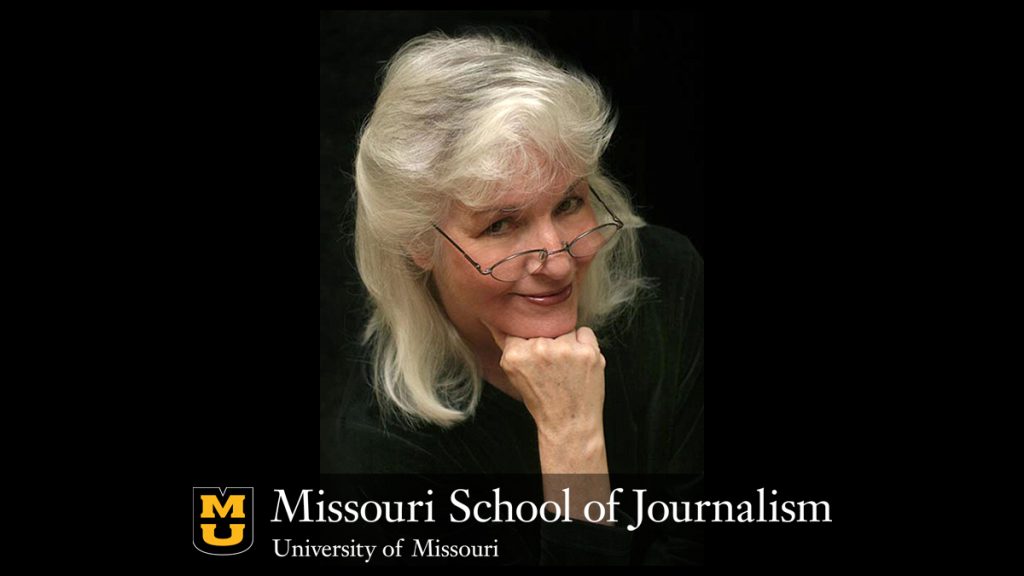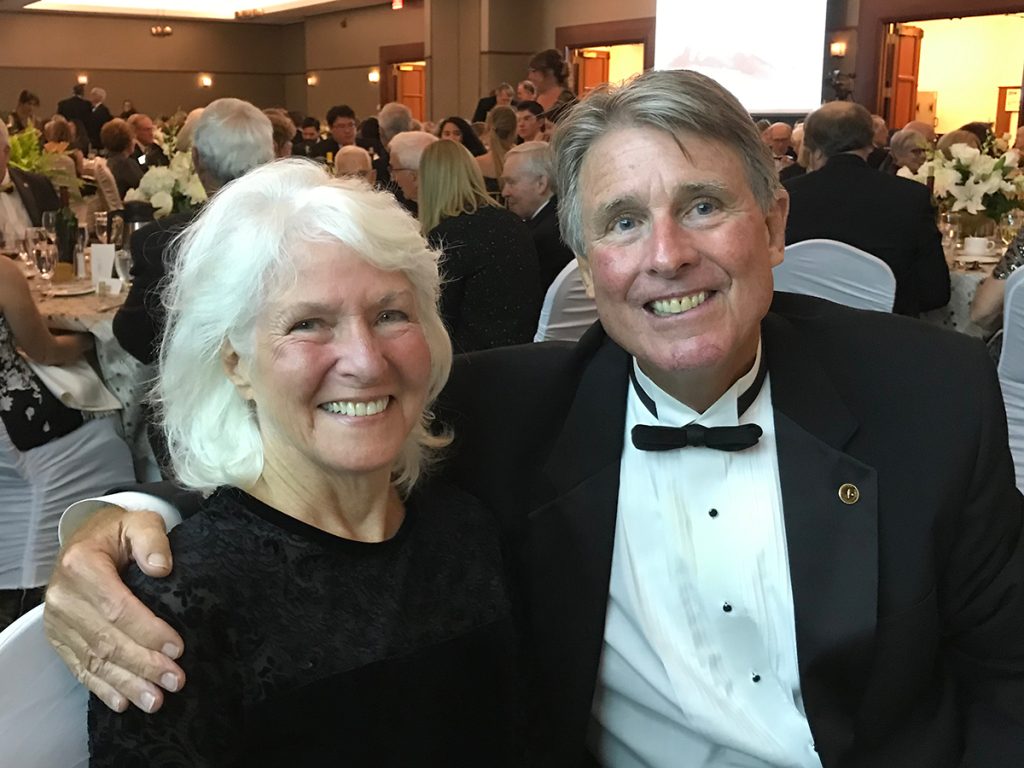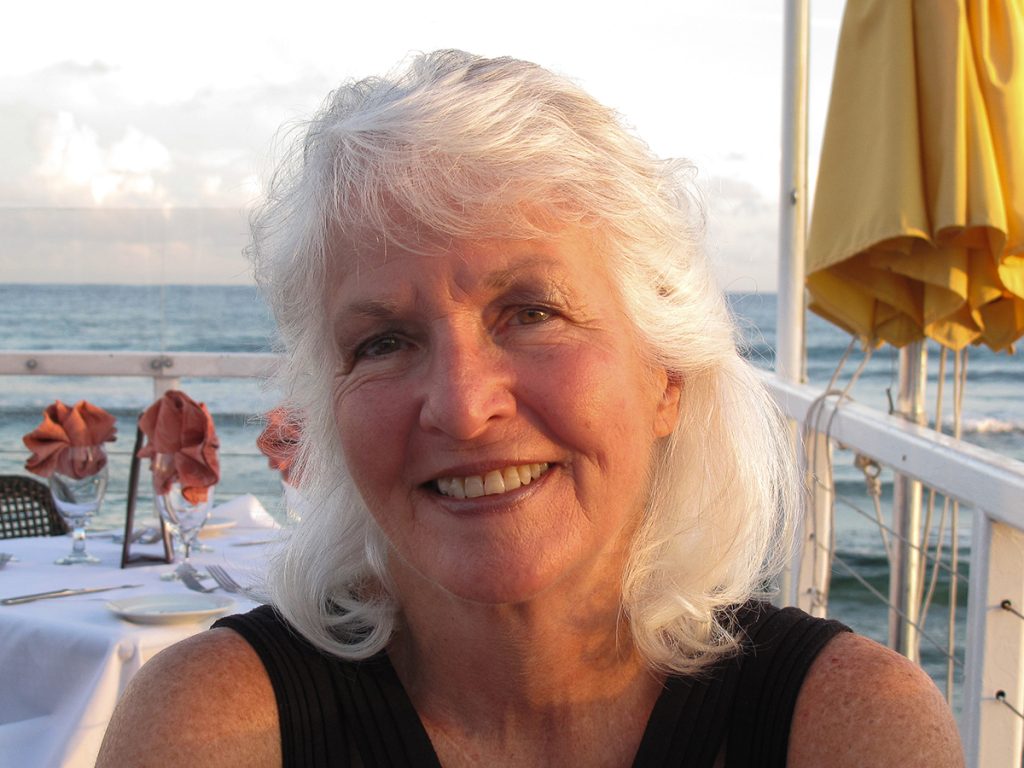Missouri School of Journalism launches campaign to fund endowment honoring Mary Kay Blakely, in support of New York Program

COLUMBIA, Mo. (Feb. 7, 2024) — Today, the Missouri School of Journalism announced the launch of a campaign to fund a new endowment in support of the School’s New York Program. The Mary Kay Blakely New York Program Fund, which will primarily provide scholarships to students in addition to other support for the program, honors the late Mary Kay Blakely, who taught writing and magazine journalism at the School as an associate professor for 17 years.
“Mary Kay’s impact is evident not only in the many former students and colleagues who benefited from her presence, but in her crucial role in developing the New York Program,” said David Kurpius, dean of the School. “Her legacy lives on in the students who gain valuable writing and multimedia experience on campus and beyond, and this fund would extend those opportunities to more students.”
Blakely earned a William T. Kemper Fellowship for Teaching Excellence, the University of Missouri’s highest teaching award, in 2004. She was also a subject of Herstory, an oral history project about women in journalism led by Associate Professor Yong Volz.
Blakely’s body of work, which was excerpted in Hallmark’s “American Voices” series of cards, included columns in Ms. Magazine, The New York Times, the Los Angeles Times, Vogue and other national publications, three books to her name, influential commentary on women’s issues and pivotal leadership in resurrecting and rebuilding from scratch the School’s New York Program, which was eventually expanded to a year-round program under current directo Reuben Stern’s leadership in 2016. She also put together an anthology of work by former students, “Words Matter,” with Amanda Dahling.
Mary Kay’s legacy lives on in the students who gain valuable writing and multimedia experience on campus and beyond, and this fund would extend those opportunities to more students.
David Kurpius
Significant startup funding for the endowment comes from a gift provided by Stephen Jorgensen, Blakely’s husband and the former dean of Mizzou’s College of Human Environmental Sciences. Jorgensen said the endowment will honor Blakely’s charitable nature, epitomized by her propensity to loan her car to students and others who needed transportation — such as Kim Townlain, a staff member in the School’s magazine program who also passed away in 2023, who once borrowed the car so she could take her family on vacation.
Blakely would also open up her home to students in need of temporary housing — sometimes for months at a time — whether it was a bedroom or an entire lower floor.
“I’ve never known someone so giving,” Jorgensen said. “Mary Kay gave of herself and her possessions without a second thought, and I’ve never known anyone else who had that much generosity and empathy for the needs of others.”
Once established, the endowment will further enhance students’ access to the New York Program’s various opportunities, which have expanded to include semester-long professional development in the spring, fall and summer terms, and a two-week, hands-on experience in global strategic communication agencies during winter break.
“We are thrilled that this fund will help make the New York Program even more accessible to students,” Stern said. “The potential for more students to get experience in a place that Mary Kay Blakely loved and felt passionate about is tremendously exciting.”
Stern added that the fund could also enable the program to grow and offer additional experiences, potentially helping expand the opportunities for students to learn from New York-based alumni, who already contribute to the program by speaking with students and inviting them into their studios, newsrooms and agencies.
“It’s wonderful to see Mary Kay’s legacy live on through this endowment,” said Colin Kilpatrick, senior executive director of advancement. “The professional opportunities this fund will provide our students is the definition of the Missouri Method and what helps makes the School a global leader.”
Those interested can contribute to the campaign here.
A legacy of generosity
A contribution in Blakely’s name was never in doubt after her passing, with several current and former faculty members coming together with Jorgensen to determine what would best honor her memory and benefit students. The group included Professor Emeritus Sandy Davidson, Associate Professor Amanda Hinnant, Professor Emeritus Don Ranly, Professor Jennifer Rowe and Professor Emeritus Steve Weinberg.
In choosing to support the New York Program, they hope to recognize Blakely’s commitment to student success that former students and colleagues remember as exceptional.
“She gave so much of her time to helping us become better writers and better human beings,” said Rowe, the former editorial director of Vox, the School of Journalism’s award-winning city magazine.
As a student, Rowe attended the first course Blakely taught at the School: an advanced writing class in 1997. She recalls being awed by the painstaking detail of Blakely’s line-by-line edits to an assignment, only to turn the page over and discover that the back was filled with broader comments about the work.
“There’s hardly a month that goes by where I don’t think of that as I give feedback to students,” Rowe said. “As students, we’re hungry for that. And when I had the privilege to become a colleague of hers and began to understand what it took to give that kind of feedback, that just brought a whole other level of admiration for what she did.”
She gave so much of her time to helping us become better writers and better human beings.
Jennifer Rowe
Part of what it took was time, something her colleagues generally agreed she didn’t worry too much about. Ranly, who ran the School’s magazine program for nearly 30 years, remembered that aspect of her personality revealing itself on her very first day.
“The time for her class was just minutes away, and there was no Mary Kay,” Ranly said. “I said, ‘My God, is she not going to show up for her first class?’ Then she comes waltzing in and says, ‘Well, I’m not late, am I?’ I think that really encapsulates her. That sort of, ‘Huh? Is there a problem?’”
But her relaxed relationship with the clock belied a strong commitment to her work, particularly when it came to helping students build skills and career connections. Drawing on a then-defunct New York-based program the School had run in the 1970s, she built the foundation for today’s popular and successful program, using her connections and experience in the city to create new opportunities for students.
“The New York semester that the School still offers is a direct result of her efforts,” said Weinberg, former director of the School’s Washington Program, who recruited her to apply for the position at the School and also introduced her to Jorgensen.
“She connected so many writing students to editors and to jobs in New York City when those seemed simply out of reach from mid-Missouri,” said Hinnant, another former student of Blakely. “She created community among the students and alumni who were living there and generously fostered foot-in-the-door connections.”
But Weinberg said that beyond her connections to the New York media industry, it was her meaningful connections with students that made her such an enduring and influential presence at the School, even after her retirement in 2014 — an authoritative statement coming from Weinberg, who wrote the centennial history of the School in 2008.
“She was always looking out for people, both professionally and personally,” Weinberg said. “There are so many former students, and so many current and former faculty, who just adore her.”
Davidson, a former communications law professor, is one such admirer.
“She was one of those people who made you feel like you were the only person in the room,” Davidson said. “She was a strong woman, a brilliant writer, an inspiring teacher and a mentor, not just to students but to colleagues like me. I consider her a role model.”
Through this endowment in Blakely’s memory, the mentorship and willingness to offer support that defined her tenure at the School will extend to current students — once funded, it will help students access opportunities in New York in perpetuity. According to Jorgensen, that is a legacy Blakely would be proud of.
“She gave everything to her students — they didn’t leave her class without a publishable piece,” Jorgensen said. “That was part of the idea of the New York program. She was the bridge between those students and the world of publishing.”
Updated: February 9, 2024

